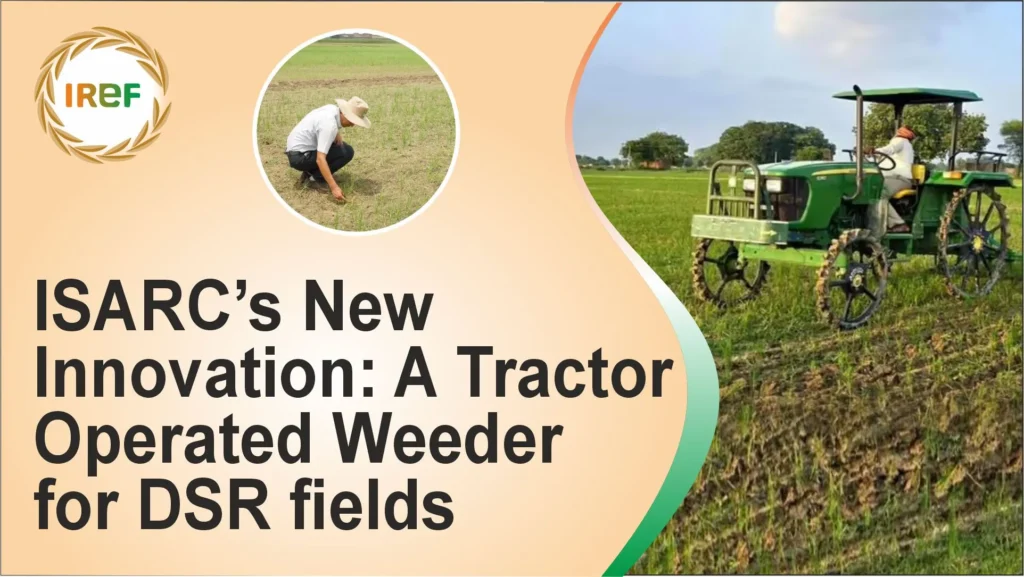Weed management is significant for the success of direct seeding. Excessive seed growth can negatively impact the rice yield. To deal with this problem, scientists of International Research Rice Institute-South Asian Regional Centre have developed a tractor dry and wet land weeder that can be operated on any tractor and enabling accurate weeding.
Posting the video of their Innovation on X(formerly Twitter) on Wednesday, July 9, the ISARC’s handle mentioned: “ISARC scientists have developed a tractor-operated weeder for DSR fields. This mechanized solution for weed management works with narrow wheels on any tractor, saving emerging crops from damage while operations”
In addition, IRRI scientist R K Malik explained that in order to conduct the safe operation between the rice rows, the latest innovation of the tractor-operated weeder needs that the tractor be fitted with narrow wheels that are particularly constructed. The distance between the rows is kept at 25 cm during the process of sowing. When used 25 to 30 days after seeding, the weeder reduces weed development and generates the best results. In about an hour, the tractor can easily traverse one acre of land. The lightweight machine, efficiently eliminates weeds even in low-moisture soils, saving labor and improving soil quality. Apart from the improving sustainability and efficiency of DSR’s cultivation, the technology also helps in tackling the problem of labour shortage problem.
Furthermore, another IRRI scientist Rabe Yahaya mentioned that timely mechanical weeding offer effective weed control in DSR fields, effacing dependency on chemical herbicides and reducing overall cultivation costs.
He added that, paddy farmers continue to face significant challenges due to climate change and irregular rainfall patterns and farmers following traditional methods, often rely on monsoon and need excessive water and labour, leading to increase the production costs. On the contrary, farmers can decrease their input expenses and gain appropriate profit by adopting DSR (direct seeded rice) techniques.
Moreover, ISARC carried out DSR cluster demonstrations on more than 500 acres in eight districts of eastern Uttar Pradesh for the Kharif 2025 season.



